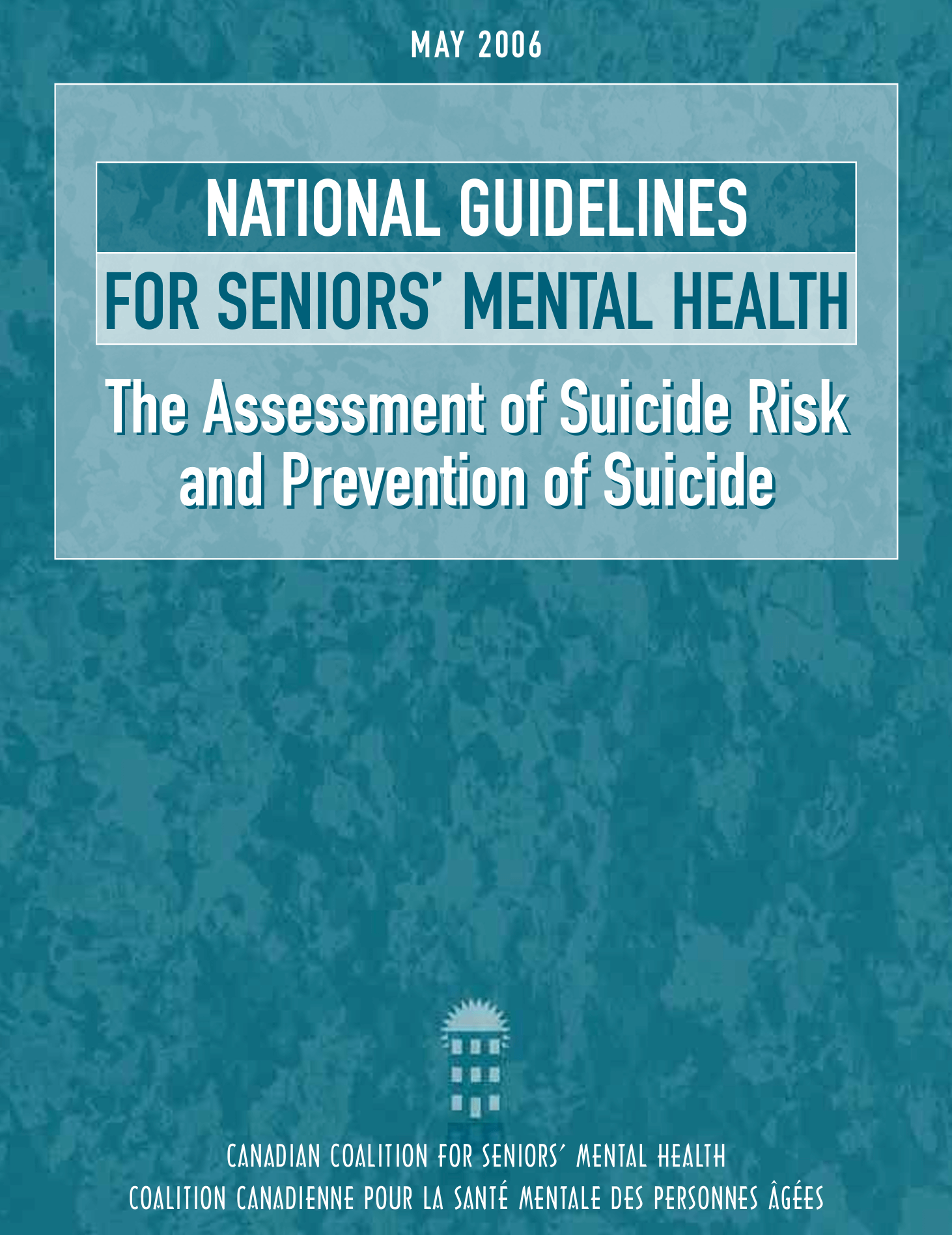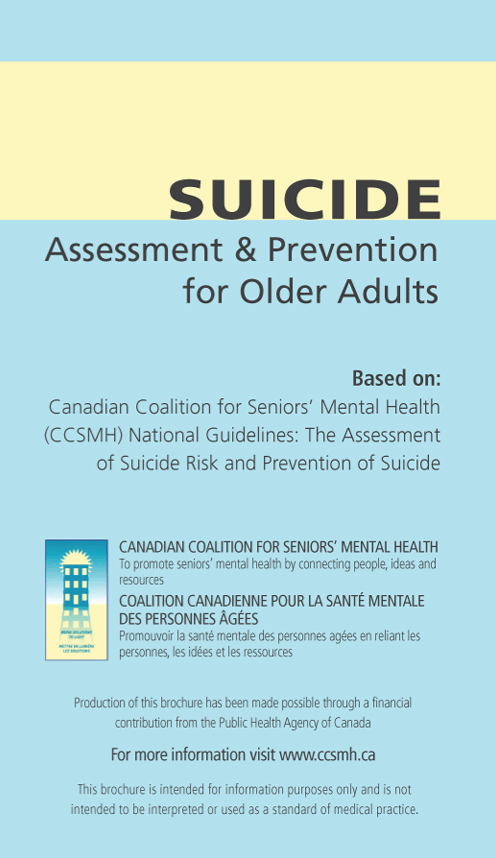Suicide Risk and Prevention – Health Care Professionals
Clinical Guidelines
Discover the guidelines on suicide risk and prevention in older adults.
For Older Adults and Care Partners
Explore ways to support mental health and well-being for yourself and loved ones.
From 2002 to 2019 the suicide rate for Canadian men 65 years of age and older nearly doubled from 23 out of 100,000 to 40. Rates of hospitalization associated with self-harm are even higher for both men and women, and it is likely that these numbers underestimate the true rates. Health care professionals need to be aware that older adults may avoid volunteering depressive or suicidal symptoms and that presentation may appear more as somatic symptoms.
Discover Our Resources

Clinical Guidelines for the Assessment of Suicide Risk and Prevention of Suicide in Older Adults
Best-practice clinical guidelines to support health care professionals when working with older adults who may be having thoughts of self-harm.

Pocket card for the assessment and prevention of suicide in older adults
Discover the pocket card for at-a-glance information for health care and social service professionals.
Discover the National ECHO webinar on Suicide Risk and Prevention in Older Adults
Suicide Prevention in Older Adults (2021), presented by Dr. Marnin Heisel, PhD, clinical psychologist and professor, Western University.
